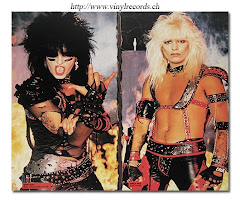Saturday, September 26, 2009
Marisa Fentis-Boyz in the Hood Response
I saw two different lifestyles within the film Boyz in the Hood. The outsiders-within consisted of Tre Styles, Tre's girlfriend Brandi, and his father Furious Styles. I feel that their lifestyles serve as a contrast to the local gang culture that exists in South Central Los Angeles. Tre and his girlfriend are both working toward a higher level of education, which is not a popular goal within their neighborhood. They focus on getting out of their violent and chaotic atmosphere and taking advantage of other opportunities in the world. Furious helps to instill these values into Tre. The view of Furious Styles and the gang culture in his neighborhood both have different concepts of what it means to be a man. From the perspective of Furious Styles values like safe sex, having a career, being financially stable, being a good father to one's children, and staying away from violence are all characteristics of what being a man entails. In the local gang culture being a man involves sexual promiscuity (safe sex isn't a priority), violence, drug dealing as an acceptable career, and flashing money by driving around in souped up automobiles. In the movie it seemed as though the women were only used for sexual purposes. They were always called derogatory names and were constantly disrespected by the men in the movie. Even in the case of Tre Styles and his girlfriend Brandi, Tre was ignoring the fact that Brandi wanted to stay abstinent from sex until marriage. I wouldn't say that he was solely doing this because of the outside pressures from his friends, but I would say that he was not respecting Brandi's morals and values as a person. The mother of Ricky and Doughboy reminded me of an article that we read in class called, "Strong and Large Black Women?" Obviously her physical figure does not go hand in hand with the article, but I do feel that her mentality does. In the article the author calls black women "mules of the world", claiming that they carry many burdens without voicing them. Ricky and Doughboy's mother seemed to follow the stereotype, that has been created for black women, of being emotionally strained and cold towards those around her.
Subscribe to:
Post Comments (Atom)


No comments:
Post a Comment
Note: Only a member of this blog may post a comment.